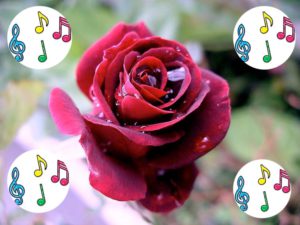 “At Christmas I no more desire a rose,
“At Christmas I no more desire a rose,
Than wish a snow in May’s new fangled mirth,
But like of each thing as in season grows.”
(Love’s Labours Lost, act 1, sc. 1
“It’s the season to be jolly…etc.” And, at least for some, reflection is the companion of gayety. Or perhaps the din and merriment of the season help us forget or conceal that we all have advanced, by one more year, towards “the undiscovered country, from whose bourn no traveller returns.”
Now for some questions. I say “you” but I mean “all of us”. Was your life a monument to time management or more of a chronicle of wasted time? And/or, to adopt the American mores of quantification, in a scale of 1 to 10, how would you rate your skill in profitably employing the 8,760 yearly hours granted by the Gods? Or rather, by Chronos, the divinity of time, who dispensed it with Swiss precision, before Switzerland was cool.
Did some remote inquiry brought into view a new mental find, a valuable treasure for you to keep? Did you drive ignorance from her fortresses and retreats, where she skulks undetected and undisturbed? Were you, at times, struck by unexpected flashes of instruction, by the fortuitous collision of happy incidents, by an involuntary concurrence of ideas?
Or maybe you realized that much of the pleasure which our condition allows, must be produced by giving elegance to trifles? Did you live for the moment or was every motion referred to some distant end – looking at the accomplishment of one design as the beginning of another, and pushing off the ultimate wish to its former distance?
Do you still believe in the perfectibility of this world, or are you tired of the pronouncements of pundits, whose poverty of ideas is concealed under the tinsel of pomp and assurance?
Do you really “like of each thing as in season grows” or did you feel an inner urge to defeat our limitations, to achieve omnipotence by eluding the rules and bounds of Nature? Or have you perhaps realized that the prescriptions of authority, when time (and propaganda) has procured them veneration, are often confounded with the laws of Nature?
Given the above, I have been “the fool in question, hoping to be the wiser by your answer(s)”.
On a more prosaic note, on the 20th of December 2013, this site was reached by the seventy-thousandth visitor, after 20 months from its birth. Which is not the merit of this webmaster, or rather, of this web-cook and bottle washer. Rather, it is unmistakable and incontrovertible evidence that William S. was a true contemporary of the future, the Castalian spring of Mt. Parnassus, the inextinguishable source of language rhythm, power and meaning.
… And talking of rhythm, “the man that hath no music in himself, nor is not moved by concord of sweet sounds, is fit for treason, stratagems and spoils”. …To prevent the charge, I submit to the unwary visitor of “Your Daily Shakespeare”, the following musical video, virus-free, and produced in house in the humble abode of the webmaster.
For “When to the session of sweet, silent thought, I summon up remembrance of things past” I return to my college years when, in the garb of a country & western singing-guitarist, I roamed, minstrel-like, through Europe on cruise-ships, at winter and summer resorts and in sundry other avenues of entertainment, so as to help finance my so-called education. Talking of the latter, I cannot help quoting Caliban’s unforgettable conclusion on the subject, “You (Prospero) taught me language and my profit on’t is, I know how to curse.”
Here is the musical video, and Happy Holidays!
http://www.youtube.com/watch?v=3cRymu5Uvdk&feature=em-upload_owner
PS. You may wish to extend the video to full screen for better viewing of the Oregon landscape.
In the Play. Prompted to give a reason for his disapproval of the king’s proposal, Biron suggests that his scheme of learning is out of place and season, just like a rose at Christmas.
